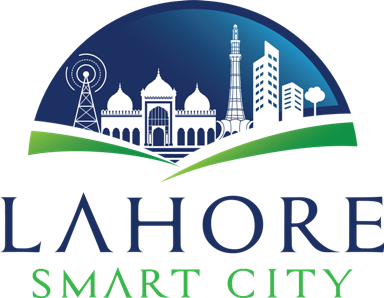Lahore Smart City Advanced Waste Management: Innovations, Strategies,
Introduction.
Advanced Waste Management Of Lahore Smart City. In our modern world, waste management is an important issue. Rapid urbanization, an increasing population, and a consumption-driven culture have all contributed to escalating the waste problem. To address these challenges, new waste management strategies have emerged. This article explores innovative waste management practices, sustainable practices, as well as the role technology plays in changing the way we handle waste.

Waste Management: The Current Landscape.
Global waste management is a multifaceted landscape, with many waste streams, including industrial waste, hazardous waste, electronic and municipal solid waste. The World Bank estimates that the world produces over 2 billion tons per year of municipal solid waste. This number is expected to grow with the increase in population and the development of economies. Traditional waste management methods, like landfills and incineration, have many environmental disadvantages. These include greenhouse gases and toxic pollutants.
The shift towards sustainable waste management.
In order to combat the negative environmental impact of traditional waste management, a movement towards sustainability is growing. This shift is based on several key principles.
Firstly, the best way to manage waste is to reduce the amount that you produce. Rethinking the design of products, minimizing packaging, and encouraging consumers not to throw away as many items are part of this approach.
Secondly, reusing and recycling waste can reduce the amount of waste that is sent to landfills. In this area, advanced recycling technologies such as closed-loop and chemical recycling are gaining popularity.
Additionally, organic waste is a large part of municipal waste. Composting converts organic waste into soil conditioners that reduce the need for chemical fertilizers and divert waste from landfills.
Moreover, the circular economy model aims at minimizing waste by maximizing the use of materials. This concept is being embraced by companies that design products that are durable, repairable, and recyclable.
Innovative Technologies in Waste Management.
The technology is revolutionizing waste management. Here are some notable advances:
Waste to Energy: The technology converts waste, usually through anaerobic or incineration digestion. Waste-to-energy facilities can produce electricity or heat using waste. This reduces landfill usage and provides an alternative source of energy.
Moreover, Smart Collection integrates IoT into waste collection systems, improving efficiency. Smart bins with sensors alert collection services to the need to empty them, allowing for a more efficient collection route and reducing unnecessary trips.
Furthermore, advanced sorting and recycling are seeing new innovations in automated sorting technologies and recycling techniques, increasing the rate of recovery for recyclable materials. Robotics powered by AI can be used to identify and separate waste types, increasing the efficiency of recycling.
Additionally, new methods of recycling plastics, such as chemical recycling or enzymatic processing, are helping to combat the plastic waste crisis. These technologies are able to break down plastics and their components into smaller pieces, which allows for more efficient recycling.
Policies and regulations: Supporting sustainable waste management.
The government’s policies and regulations play a key role in promoting sustainable management of waste. Many countries have taken steps to promote waste reduction, recycling, and responsible disposal in recent years.
Moreover, the following are key policy trends:
Extended producer responsibility (EPR): This concept makes manufacturers responsible for their entire product lifecycle, including disposal. EPR programs encourage companies to design their products with recycling and waste minimization in mind.
Single-Use Plastics Bans: To combat plastic pollution, many countries and regions have banned the use of single-use plastics such as straws, bags, and cutlery. These bans encourage the development of alternative materials, and they reduce plastic waste.
Additionally, governments set ambitious targets to reduce waste sent to landfills. To achieve these targets, a combination of waste reduction, waste recycling, and waste-to-energy strategies is needed.
Communities and Education: The Role of Communities.
Waste management success depends on community involvement and education. Public awareness campaigns and school programs can motivate individuals to act. Furthermore, communities can change waste management practices significantly by fostering a sustainable culture.
Conclusion: A Sustainable Future for Waste Management.
Advanced Waste Management Of Lahore Smart City. Advanced Waste Management Of Lahore Smart City and minimizes the impact of waste disposal on the environment. Moreover, we are moving closer to a circular economic system as we develop new approaches to managing waste.
